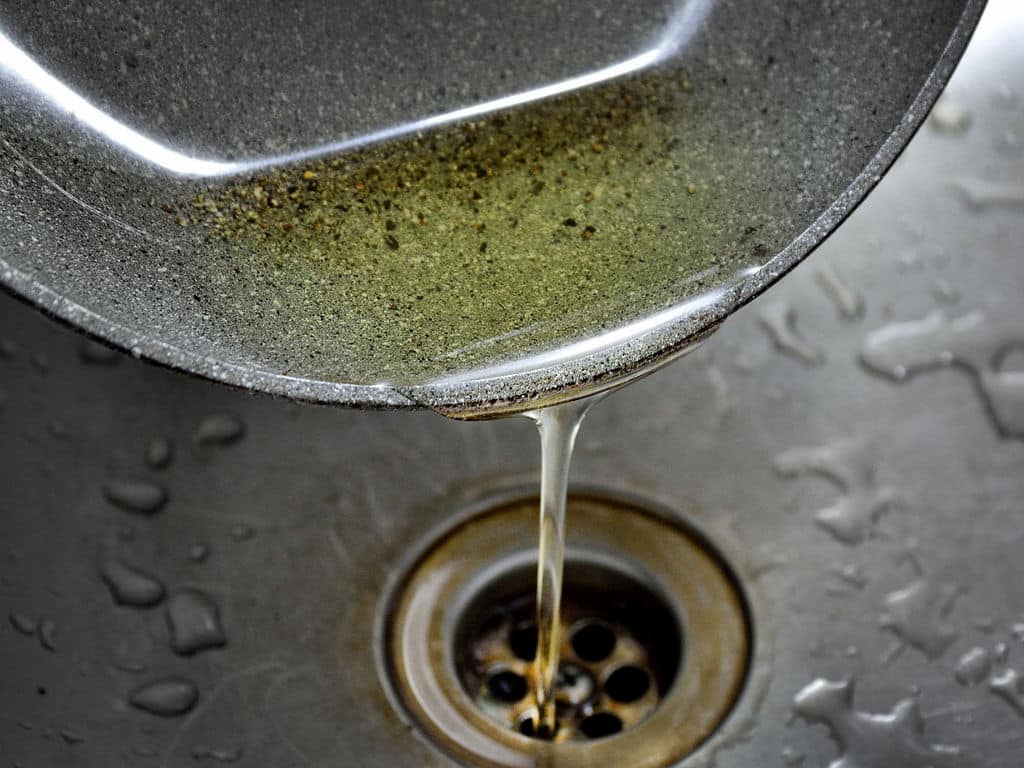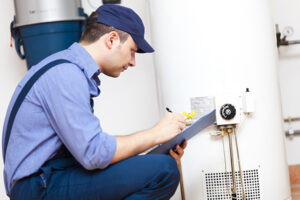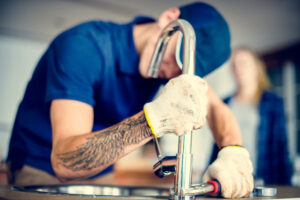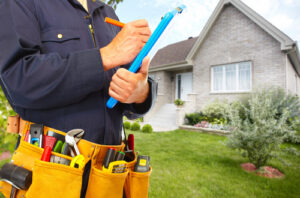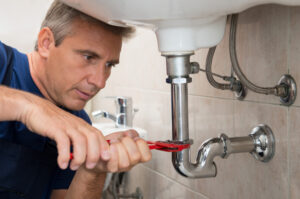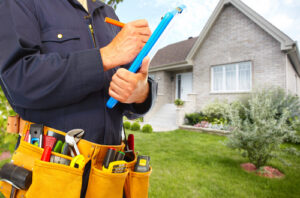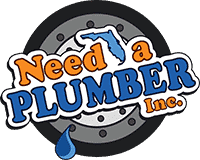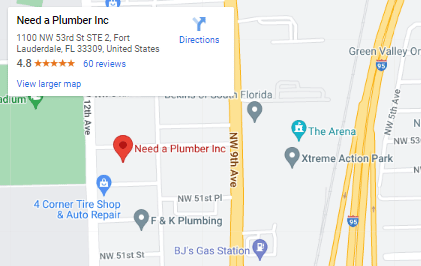Why You Should Never Pour Grease Down the Drain
It might be enticing to discard oil, fat, and grease by dumping them down the sink or immediately washing your pan after using it. Some individuals throw their residual oil in the sink before stopping and thinking about it or wash pans with canola oil and other fats on a daily basis. In actuality, one of the greatest prevalent causes of plumbing problems is dumping oil and other cooking fats down the sink.
Although it may seem harmless and simple to throw remaining oil down the drain after you are done cooking, doing so is significantly more dangerous than most people know. Fat and frying oil may clog your plumbing system, waste disposal system, and even sewage system. Fats and oils that are not properly disposed of can cause blockages and even complete obstructions in your pipes. Grease contained in butter, pork fats, lard, vegetable oil, condiments, and dressings can harden and mix with other oil fragments in the pipelines, causing a harmful accumulation. If your plumbing backs up, it can impede the flow of water across your house and even prohibit your pipelines from emptying correctly.
What Occurs When Grease Is Dumped Down Your Sink?
Oil and grease clog drains in a variety of ways. Grease obstructions are, at their most basic level, a chemical problem: grease hardens as it cools down, becoming caught in pipes and clogging drains. These fats in the grease disintegrate into their most basic elements of glycerol and fatty acids once you put your frying oil and grease trash into your sink’s drainage.
Due to concrete degradation, the saturated fats from the grease progressively bond to the calcium present in drains and sewage pipes. When the acids and calcium interact, a waxy substance forms. As more grease is poured down the drain, particles build on the sewage pipe roof and create stalactites.
What Is the Best Way to Get Rid of Grease?
Other means of disposal of grease and oils are superior to pouring them down your sink. Here are some ideas on how to effectively deal with disposing of grease.
1. Allow it to completely dry
Allow the oil to cool and harden in the air to avoid inadvertent burns and to enable the grease to congeal. Letting the oil to congeal will make removing it from pans and collecting it simpler throughout the cleanup.
2. Scrape the hardened Grease into Its Own Container
You may scrape or wipe off the oil with a plastic or rubber spatula or a cotton towel once it has hardened and is safe to handle. You may scrape all of the solidified oil and fat into a throwaway container that you maintain for collecting residual grease till you’re prepared to throw it into the garbage. Once you’re prepared to dispose of the container, seal it in a trash bag to avoid spills or leaks in the trash can.
3. Toss it in the trash
Another option is to transfer the fluid oil from the pan into an aluminum foil-covered basin and place it in the refrigerator for a few hours. After the grease has hardened in the fridge, remove the foil from the basin, cover the grease tightly, and dispose of it safely.
4. Oil Recycling
Recycling, on the other hand, is a viable method for disposing of significant volumes of oil. You could put your oil in a closed container and transport it to the collecting station after straining it. This material does not need to be refrigerated before being collected for recycling. You may search for a designated collection place in your municipality once you’re prepared to recycle your oil. You’ll prevent adding more garbage to the dump by converting it into an alternate energy source this way. After filtering out any food scraps, the collecting location may convert the cooking oil into biofuel.
One of the most crucial things is to pay considerable attention to your pipes so that you can detect any potential problems. The sooner you discover a plumbing issue, the easier and less expensive it will be to resolve the problem
We provide professional plumbing services for residential, commercial, and industrial clients throughout Southern Florida. We provide fast response time, competitive rates, and reliable service. Need A Plumber? Schedule an appointment today and call us at 954-445-6443 or use our contact form.

